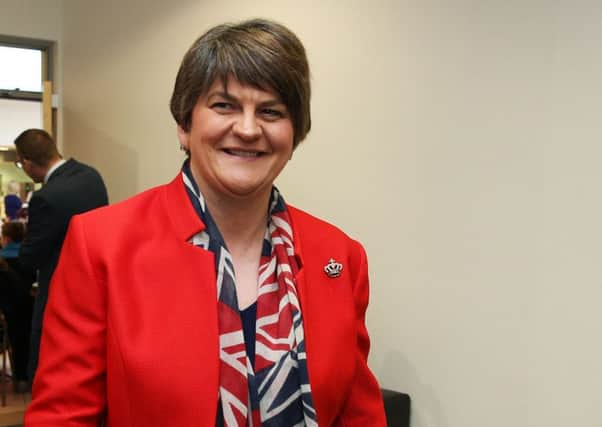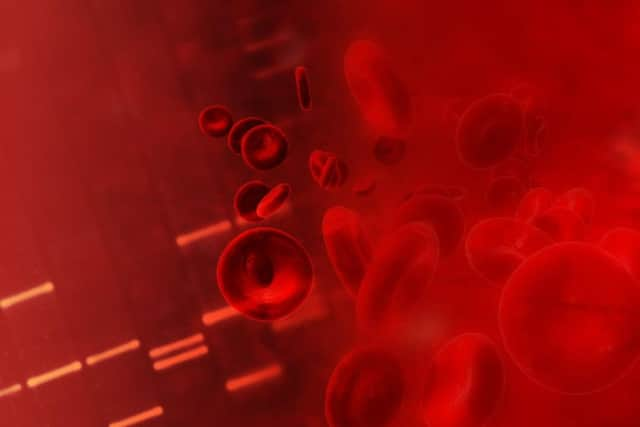Foster: Gay blood ban was never about morality


New Sinn Fein health minister Michelle O’Neill declared on Thursday that the ban will end this September, meaning that gay men will be able to give blood one year after they last had sex with another man – bringing the Province in line with the rest of the UK.
Whilst DUP MP Sammy Wilson has warned that other countries regard the new approach as potentially risky, UUP MLA and former health minister Michael McGimpsey hailed the move, and said that it was a result of the DUP feeling “increasingly embarrassed” about the controversy.
Advertisement
Hide AdAdvertisement
Hide AdThe DUP had held the health ministry from 2011 up until last month.


The News Letter tried to speak with ex-health minister Edwin Poots – whose decision to on maintain the lifetime ban had led to high-profile battles through the courts – but the paper was referred instead to the party press office.
A court had ruled in 2015 that Mr Poots’ stance may have been “infected” by bias due to his Christian beliefs – but this ruling was overturned earlier this year.
In a statement on Friday, the DUP said: “Our position has always been guided by patient safety and by the scientific evidence...
Advertisement
Hide AdAdvertisement
Hide Ad“The current health minister has been able to put forward an evidence-based case to the Executive and as such we were happy to support the decision to move to a one-year deferral.”


Since 2011, the rest of the UK has operated a one-year deferral system (meaning that, before they are allowed to donate, gay men must allow 12 months to elapse after sexual intercourse with another man).
DUP leader Arlene Foster, when quizzed by the BBC late on Friday afternoon over whether she was “happy” with the new policy, said: “I was because we always said that such a decision should be based on science and based on medical evidence, and that medical evidence was there.
“Michelle came with the evidence to us and I was quite happy to endorse the decision she had suggested.”
Advertisement
Hide AdAdvertisement
Hide AdAsked if this was the same evidence that previous DUP ministers had seen, she said: “No, it wasn’t. There were new surveys carried out which came to the Department of Health as I understand it just before purdah [the period in the immediate run up to the May election].”
If the previous health minister (DUP man Simon Hamilton, who had held the post for around one year until May) had been able to deal with it before the election, Mrs Foster said “he would have done so”.
She said their decision has “never been about equality or morality – it’s always been about the protection of the person receiving the blood”.
However DUP stalwart Sammy Wilson, the MP for East Antrim who last year had considered mounting a challenge to Mrs Foster for leadership of the party, sounded a cautious note about the decision to end the lifetime ban when he spoke to the BBC on Thursday night.
Advertisement
Hide AdAdvertisement
Hide Ad“I hope that she [Michelle O’Neill] has ensured whatever arrangements she puts in place ensure people do not finish up with contaminated blood and have their health put at risk,” he said.
“There are other countries that still see it as a risk.
“I hope that she has considered all of the information before she made that decision.”
Asked if the change of the law in the mainland UK had resulted in any more infections, a spokeswoman for the NHS Blood and Transplant service in England said that “there has not been an increase in risk since 2011”.